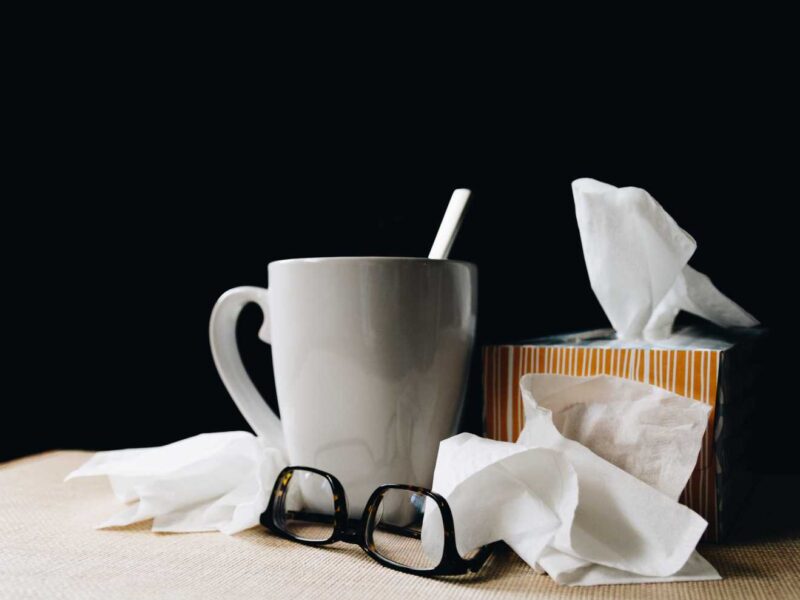The flu (or any illness for that matter), with its relentless assault on our bodies, can leave us feeling utterly drained and miserable. Whether it’s the sudden onset of fever, chills, body aches, or relentless congestion, the illness demands attention and care. However, with the right approach, you can navigate through the storm and emerge on the other side feeling stronger and healthier. In this guide, we’ll explore essential steps to take when the flu catches you, helping you on your journey to recovery.
** I am a nurse, but I am not YOUR nurse. I am also not a doctor. The information provided on this page are for informational purposes only and should not be taken as professional medical advice. It should not be used to diagnose or treat a health problem or disease. It is important to consult with your healthcare professional for personalized medical advice. Always seek the advice and direction of your doctor or healthcare provider regarding any medical conditions, concerns or circumstances.**
Sleep Rest Sleep Rest Sleep Rest
When illness hits, your body needs rest more than ever. Give yourself permission to take a break from your usual routine and focus on recuperating. Adequate rest allows your immune system to work more efficiently in combating the virus, ultimately speeding up your recovery process.
Stay Hydrated
Dehydration can exacerbate cold and flu symptoms and prolong your illness. Make a conscious effort to drink plenty of fluids, such as water, herbal teas, and clear broths. These not only keep you hydrated but also help in loosening congestion and flushing out toxins from your system.
Nourish Your Body
Even if you don’t have much of an appetite, it’s crucial to fuel your body with nutritious foods. Opt for light, easy-to-digest meals that are rich in vitamins and minerals to support your immune system. Foods like chicken soup, fruits, vegetables, and whole grains can provide the necessary nutrients to aid in your recovery.
Manage Symptoms
Over-the-counter medications can help alleviate cold and flu symptoms such as fever, body aches, congestion, and sore throat. Pain relievers like acetaminophen or ibuprofen can reduce fever and discomfort, while decongestants or antihistamines can help relieve congestion. However, always read and follow the recommended dosage instructions carefully and follow your doctor’s guidance before using any medications.
Practice Good Hygiene
To prevent the spread of the your germs to others and minimize the risk of secondary infections, practice good hygiene habits. Cover your mouth and nose when coughing or sneezing, wash your hands frequently with soap and water, and avoid close contact with others until you’re no longer contagious.
Use Home Remedies
Natural remedies like gargling with warm salt water, using nasal saline rinses, or inhaling steam can provide relief from cold and flu symptoms. These simple yet effective home remedies can help soothe a sore throat, clear nasal passages, and ease congestion, promoting a quicker recovery
Seek Medical Attention If Necessary
While most cases of the illness can be managed at home with self-care measures, certain symptoms may warrant medical attention. If you experience difficulty breathing, persistent high fever, severe pain, or any other concerning symptoms, consult a healthcare professional promptly.
If you are tired of getting sick, or want to try and prevent this from happening any more that necessary, check out my article on How to Stay Healthy During Cold and Flu Season!



